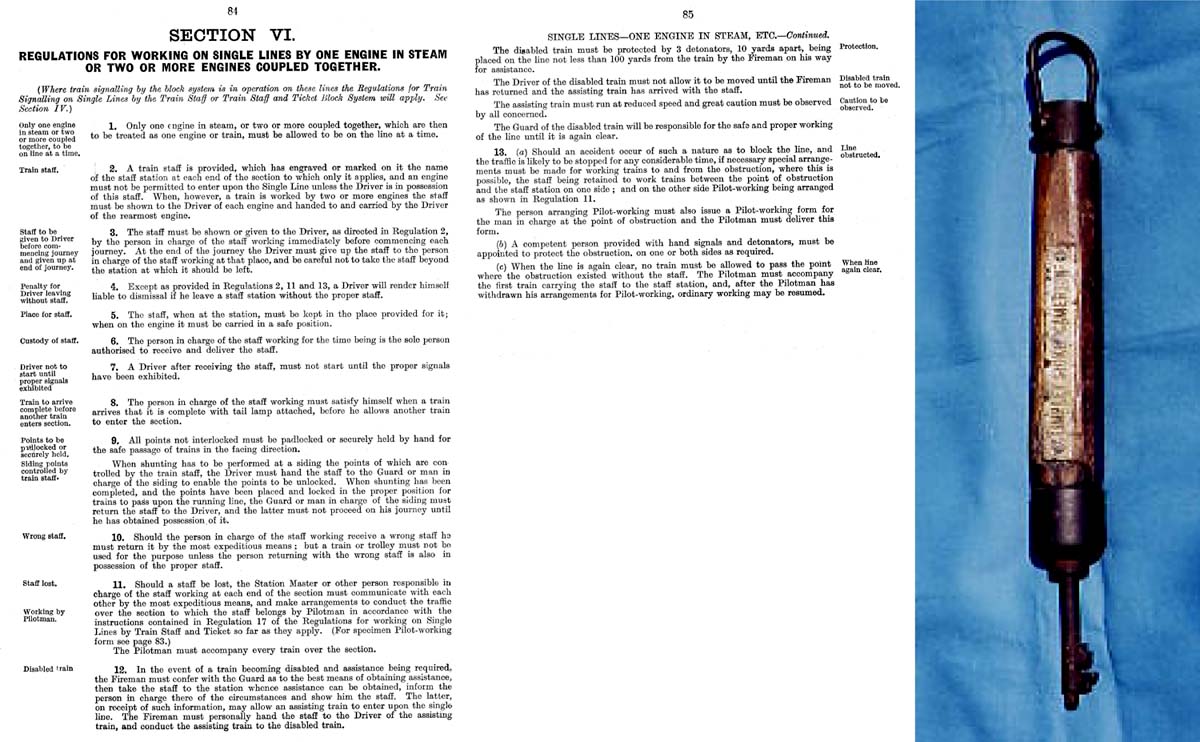|
|
 |
 |
|
Stations, Junctions, etc
Engine Sheds
Other
|

|
Miscellaneous: Operating Equipment & Practices
Signalling Procedure: misc_equip251
 |
When first built most single lines were kept safe by
restricting operation to a single train (One Engine in Steam) and to indicate
to the Driver that his train was authorised to operate on the line a
‘Train Staff’ for the particular line would be issued to him. There
was only one Train Staff allocated to each single line section and where there
were adjacent single line sections the train staffs were given different
cross-section shapes (Square, triangular, round, etc). Train Staffs were often
extended with an Annett Key for the operation of any locked Ground Frames on
section. A typical train staff was normally wooden, approximately a foot long,
but with the Annett Key extension was 20 inches long. The train staff diameter
was about 3½ inches thick with a brass plate identifying the relevant
single track section. This One Engine in Steam system worked well on short
lines where it was retained in to the British Rail era, but to avoid
restricting train services on longer single lines, the Great Western Railway
copied a system being used by the West Midland Railway and introduced the
‘Train Staff and Ticket’ system in 1862 (see 'misc_equip252').
The photograph shows a typical wooden Train Staff with an
Annett Key extension and an extract from the Great Western Railway’s
‘Regulations for Train Signalling on Double and Single Lines’, which
was issued in 1936 detailing the relevant section on the operation of the One
engine in Steam on Single Lines system. In Warwickshire the Great Western
Railway used this system on two of their branch lines:
| Single Line Branch |
Train Staff Colour |
Train Staff Shape |
| Shipston-on-Stour Branch |
Varnished Beech |
Round |
| Henley-in-Arden Goods Line |
Red |
Round |
Robert Ferris
 back back

|
|
|
